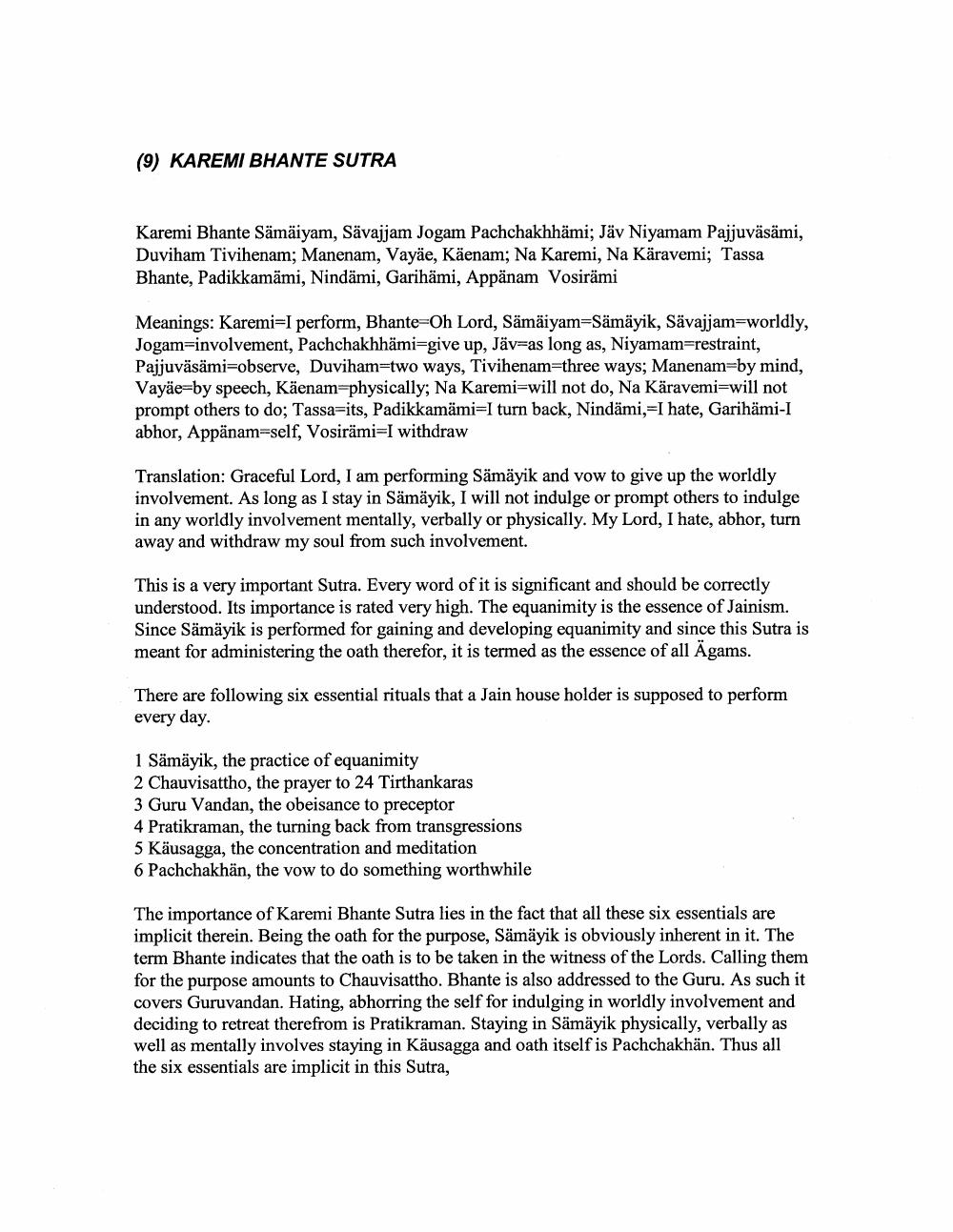________________
(9) KAREMI BHANTE SUTRA
Karemi Bhante Sämäiyam, Sävajjam Jogam Pachchakhhämi; Jäv Niyamam Pajjuväsämi, Duviham Tivihenam; Manenam, Vayäe, Käenam; Na Karemi, Na Käravemi; Tassa Bhante, Padikkamämi, Nindāmi, Garihāmi, Appänam Vosirämi
Meanings: Karemi-I perform, Bhante-Oh Lord, Sämäiyam-Sämäyik, Sävajjam-worldly, Jogam-involvement, Pachchakhhämi-give up, Jäv=as long as, Niyamam-restraint, Pajjuväsämi-observe, Duviham-two ways, Tivihenam-three ways; Manenam-by mind, Vayle-by speech, Käenam-physically; Na Karemi-will not do, Na Käravemi-will not prompt others to do; Tassa-its, Padikkamämi-I turn back, Nindämi, I hate, Garihämi-I abhor, Applinam-self, Vosirämi-I withdraw
Translation: Graceful Lord, I am performing Sämäyik and vow to give up the worldly involvement. As long as I stay in Sämäyik, I will not indulge or prompt others to indulge in any worldly involvement mentally, verbally or physically. My Lord, I hate, abhor, turn away and withdraw my soul from such involvement.
This is a very important Sutra. Every word of it is significant and should be correctly understood. Its importance is rated very high. The equanimity is the essence of Jainism. Since Sämäyik is performed for gaining and developing equanimity and since this Sutra is meant for administering the oath therefor, it is termed as the essence of all Ägams.
There are following six essential rituals that a Jain house holder is supposed to perform every day.
1 Sämäyik, the practice of equanimity
2 Chauvisattho, the prayer to 24 Tirthankaras
3 Guru Vandan, the obeisance to preceptor
4 Pratikraman, the turning back from transgressions
5 Käusagga, the concentration and meditation
6 Pachchakhän, the vow to do something worthwhile
The importance of Karemi Bhante Sutra lies in the fact that all these six essentials are implicit therein. Being the oath for the purpose, Sämäyik is obviously inherent in it. The term Bhante indicates that the oath is to be taken in the witness of the Lords. Calling them for the purpose amounts to Chauvisattho. Bhante is also addressed to the Guru. As such it covers Guruvandan. Hating, abhorring the self for indulging in worldly involvement and deciding to retreat therefrom is Pratikraman. Staying in Sämäyik physically, verbally as well as mentally involves staying in Käusagga and oath itself is Pachchakhän. Thus all the six essentials are implicit in this Sutra,




